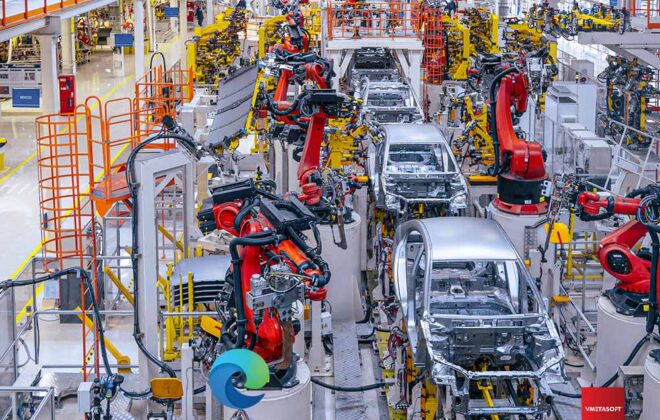CRM vs ERP: What is the Difference?
In today’s digital age, businesses have access to an array of software tools that can streamline their operations and improve customer interactions. Two popular types of software are customer relationship management (CRM) and enterprise resource planning (ERP) systems. While both tools can help businesses manage their operations, they serve distinct purposes. In this blog post, we will explore the differences between CRM and ERP software, their respective features, and how they can benefit businesses.
What is CRM Software?
CRM software is designed to help businesses manage and improve their customer relationships. It typically includes features such as contact management, sales automation, marketing automation, and customer service management. The main goal of CRM software is to help businesses build and maintain strong relationships with their customers, ultimately driving customer satisfaction and loyalty.
Benefits of CRM Software:
Improved customer insights: CRM software provides businesses with a comprehensive view of their customers’ interactions and preferences. This allows businesses to personalize their interactions, tailor their marketing efforts, and improve customer satisfaction.
Streamlined sales processes: CRM software automates the sales process, from lead generation to closing deals. This results in increased efficiency, reduced manual labor, and higher conversion rates.
Enhanced customer service: With CRM software, businesses can respond to customer inquiries and complaints quickly and efficiently, resulting in higher customer satisfaction and retention rates.
What is ERP Software?
ERP software is designed to help businesses manage and streamline their core business processes, such as accounting, inventory management, production planning, and human resources management. It integrates various departments and functions within a company into a single system, providing a centralized database of information that can be accessed and shared across departments.
Benefits of ERP Software:
Improved operational efficiency: ERP software automates and streamlines business processes, reducing manual labour and errors. This results in increased efficiency and productivity across all departments.
Better financial management: ERP software provides businesses with a complete financial view of their operations, allowing them to manage their finances more effectively. This includes financial reporting, budgeting, and forecasting.
Enhanced supply chain management: ERP software provides businesses with real-time insights into their inventory levels, production schedules, and supplier relationships. This allows businesses to optimize their supply chain and reduce costs.
Key Differences Between CRM and ERP Software:
Focus: While both CRM and ERP software are designed to improve business operations, they have different focuses. CRM software is focused on managing customer interactions, while ERP software is focused on managing core business processes.
Features: CRM software typically includes features such as contact management, sales automation, and customer service management, while ERP software includes features such as accounting, inventory management, and supply chain management.
Data Integration: While both CRM and ERP software store data in a centralized database, they store different types of data. CRM software stores customer data, while ERP software stores business process data.
Conclusion:
In summary, CRM and ERP software serve different functions in a business. While CRM software focuses on improving customer interactions and driving customer satisfaction, ERP software focuses on managing core business processes and improving operational efficiency. Choosing the right software for your business will depend on your specific needs and goals. By understanding the differences between CRM and ERP software, businesses can make informed decisions and select the software that best fits their needs.
Implementing the software
Knowing your requirement and Implementing business software can cut down enormous cost and time, as you can automate process that requires additional time and work.
In Vmetasoft® we help industries by building a customized software solution using Artificial Intelligence by feeding selective data with Machine learning that is tailored made for your business need.
Tags In
Related Posts
- Agriculture
- Artificial Intelligence
- Big Data
- Business Process Improvement
- Business Process Re-engineering
- Cloud Computing
- CRM software
- Cyber Security
- Data Mining
- Data science
- Data Storage Technology
- DataBase
- DevOps Environment
- Digital Transformation
- ERP Software
- Fraud Prevention
- How to Solve
- IoT: Internet of Things
- Java
- Logo Design
- Product Development
- Uncategorized
- Ux Design
- Virtual Reality Technology
- Web Development
- Work Culture
ANN artificial intelligence Artificial Neural Network asset management attack branding buisness buisness development buisness software buisness technology cloud computing CRM Software database data mining digital transformation ERP Software generative ai growth rate how to hr human capital management software hybrid iass India inventory management java progamming language logo design machine learning microsoft edge modernization mtbf mttr pass performance prevention private public ransomware red hat enterprise linux sass smart manufacturing soc SSD training and deployment unistall
Recent Comments
Thank You
Thank you Zen
Thank you Cerebrozen
Really a insightful bog
We really apprecite Vmetasoft affort, helping our brand with SOC. We are really proud to be partnered with Vmetasoft Inc.





